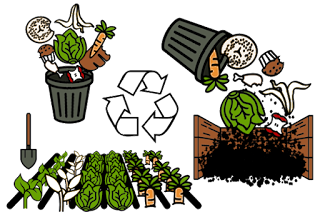Wet Waste Management
Meaning of waste management:
Waste management is the managing of waste by disposal and recycling of it. Moreover, waste management needs proper techniques keeping in mind the environmental situations. For instance, there are various methods and techniques by which the waste is disposed of. Some of them are Landfills, Recycling, Composting, etc. Furthermore, these methods are much useful in disposing of the waste without causing any harm to the environment.
Methods for Waste Management
Recycling– Above all the most important method is the recycling of waste. This method does not need any resources. Therefore this is much useful in the management of waste. Recycling is the reusing of things that are scrapped of. Moreover, recycling is further converting waste into useful resources.
Landfills– Landfills is the most common method for waste management. The garbage gets buried in large pits in the ground and then covered by the layer of mud. As a result, the garbage gets decomposed inside the pits over the years. In conclusion, in this method elimination of the odor and area taken by the waste takes place.
Composting– Composting is the converting of organic waste into fertilizers. This method increases the fertility of the soil. As a result, it is helpful in more growth in plants. Furthermore it the useful conversion of waste management that is benefiting the environment.
Wet waste management refers to the proper disposal and management of organic waste that is generated from households, commercial establishments, and other sources. Wet waste mainly consists of biodegradable waste such as food waste, vegetable and fruit peels, and garden waste.
Proper management of wet waste is essential to prevent the accumulation of waste, reduce pollution, and promote sustainable living. Here are some methods for wet waste management:
Composting: Composting is a natural process of converting organic waste into nutrient-rich compost that can be used as fertilizer for plants. Home composting and community composting are popular methods of wet waste management.
Energy production: Wet waste can also be used for the production of renewable energy such as biogas. This process involves anaerobic digestion of organic waste, which produces methane that can be used to generate electricity or heat.



Comments
Post a Comment